On Sept. 30, Canada will observe the National Day for Truth and Reconciliation. Formerly known as Orange Shirt Day, the now federal statutory day honours generations of Indigenous survivors, families and communities impacted by Canada’s residential school system and remembers the children who never returned home. It’s also a good time to honour the “Truth” in Truth and Reconciliation and check in on Canada’s progress on the 94 Calls to Action that came out of the Truth and Reconciliation Committee.
Here at Don’t Call Me Resilient, we’ve curated a playlist of episodes for you that explore the historical and current issues of Indigenous communities. Through the voices of experts, the playlist features discussions related to Indigenous history, justice, rights and resistance. In each episode, Indigenous scholars and experts present their research and ideas to help explain the issues. They dive deep into conversations about the importance of preserving and protecting Indigenous land, life and identity.
As a collection, these episodes invite listeners to engage in a process of learning and unlearning; to acknowledge the tragic legacies of residential schools in Canada and to move beyond a single day of remembrance. Individually, the conversations are thoughtful and informative explorations of Indigenous scholarship, living history and the future of reconciliation in Canada.
In this episode, two Indigenous land defenders from different nations as well as generations: Ellen Gabriel, a human rights activist and artist well known for her role during the 1990 Oka crisis, and Anne Spice, a professor at Toronto Metropolitan University, discuss the importance and urgency of defending land. They explain why they work to protect the land against invasive development and why their work is necessary for everyone’s survival. Also, check out Gabriel’s forthcoming book with Sean Carleton: When the Pine Needles Fall. (first aired: March, 2021)
How stories about alternate worlds can help us imagine a better future
Stories are a powerful tool to resist oppressive situations. They give writers from marginalized communities a way to imagine alternate realities, and to critique the one we live in. In this episode, Vinita speaks to two storytellers who offer up wonderous “otherworlds” for Indigenous and Black people. Selwyn Seyfu Hinds is an L.A-based screenwriter and the producer of Esi Edugyan’s Washington Black. Daniel Heath Justice is professor in Indigenous literature at the University of British Columbia and author of Why Indigenous Literatures Matter.
Stolen Identities: What does it mean to be Indigenous?
(first aired: October, 2021)Why pollution is as much about colonialism as chemicals
The state of our environment keeps getting scarier and scarier: and we have yet to find a way forward. Two Indigenous scholars who run labs to address the climate crisis say bringing an Indigenous understanding to environmental justice could help us get unstuck. A big part of that is seeing pollution through a new lens — one that acknowledges it is as much about racism and colonialism as it is toxic chemicals. Vinita talks to Michelle Murphy at the University of Toronto, and Max Liboiron, author of Pollution is Colonialism, and associate professor at Memorial University of Newfoundland. (first aired: November, 2021)
(first aired: November, 2021)
Unmarked graves of 215 Indigenous children were found in Kamloops a year ago: What’s happened since?
Don’t Call Me Resilient The Conversation Canada (first aired: May, 2022)Diamond mines are not a girl’s best friend
Refracted Economies: Diamond Mining and Social Reproduction in the North (first aired: June, 2022)Has the meaning behind the Canadian flag changed?
(first aired: June, 2022)For decades, Canadian media have covered Indigenous communities with a heavy reliance on stereotypes — casting Indigenous Peoples as victims or warriors. This deep-seated bias in the news can have unsettling consequences for both how a community perceives itself as well as how others perceive them. Award-winning Anishinaabe journalist and former CBC reporter Duncan McCue is trying to change that both in the classroom and in the newsroom. He joins Vinita to talk about what Canadian media could be doing better. (first aired: November, 2022)
About the Queen, the Crown’s crimes and how to talk about the unmourned
When the Queen died, there was a tremendous outpouring of love and grief for her and the monarchy she represented. But not everyone wanted to take a moment of silence — and there are a lot of reasons why. For example, the head of the Assembly of First Nations, RoseAnne Archibald told CTV News that the Royal Family should apologize for the failures of the Crown… “particularly for the destructiveness of colonization on First Nations people.” To explore these ideas further, we reached out to two scholars, Veldon Coburn, associate professor and faculty chair of the Indigenous Relations Initiative at McGill University and Cheryl Thompson, an associate professor of media and culture at Toronto Metropolitan University. Both say that the Queen’s death could be a uniting moment of dissent for people from current and former colonies. (first aired: September, 2022)
The Vatican just renounced a 500-year-old doctrine that justified colonial land theft… Now what?
In 2023, the Vatican repudiated the Doctrine of Discovery, a 500-year-old decree used to justify settler colonialism. In this episode, political and Indigenous studies scholar Veldon Coburn explains why the Vatican’s repudiation of the Doctrine is a huge symbolic victory. We also examine what this repudiation may mean for members of Indigenous Nations, what prompted this renouncement, and what still needs to happen. (first aired: April, 2023)
Digging into the colonial roots of gardening
In this episode, we explore how the practice of gardening is deeply tied to colonialism that affects what we plant and also, who gets to garden. But there is also a growing understanding that centuries-old Indigenous land-based knowledge and practices can foster a more resilient landscape. We speak to community activist Carolynne Crawley — a woman with Mi’kmaw, Black and Irish ancestry who leads workshops and walks that integrate Indigenous teachings into practice — and Jacqueline L. Scott — a PhD candidate at the University of Toronto’s Ontario Institute for Studies in Education whose research focuses on the wilderness and making it a welcoming space for Black people. We discuss a new way forward, discussing practical gardening tips with an eye to Indigenous knowledge. (first aired: May, 2023)
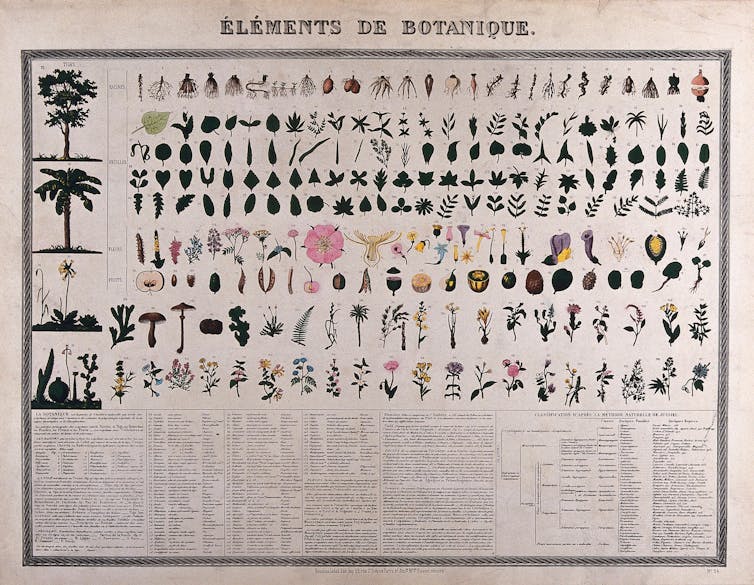
Why preserving Indigenous languages is so critical to culture
(first aired: June, 2023)Inside the search for the unmarked graves of children lost to Indian Residential Schools
(first aired: September, 2023)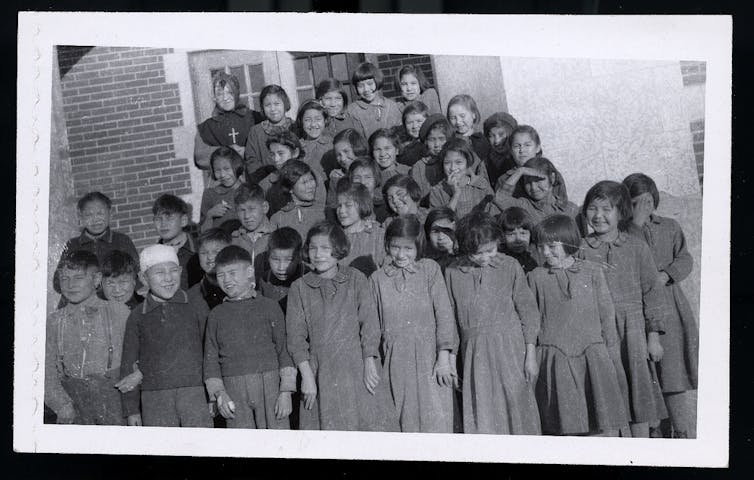
How journalists tell Buffy Sainte-Marie’s story matters - explained by a ‘60s Scoop survivor
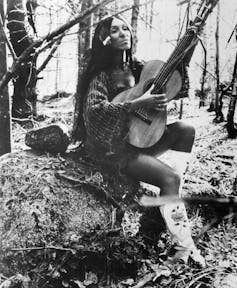
Lori Campbell, a ‘60s Scoop survivor and associate vice president of Indigenous engagement at the University of Regina, challenges the CBC’s motives in releasing an investigation that questioned the Indigenous roots of legendary singer-songwriter Buffy Sainte-Marie in this episode. Campbell asks: was the story in service of truth and reconciliation or a sensationalist headline? She also highlights the turmoil the story is causing, especially among Indigenous communities in Saskatchewan, home to the Piapot Nation that embraced Sainte-Marie. (first aired: November, 2023)
Colonialists used starvation as a tool of oppression
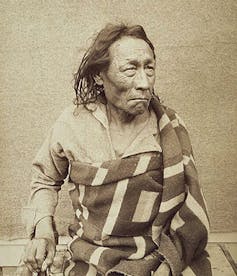
Vinita speaks to two famine scholars about the use of starvation as a tool in the colonizer’s playbook through two historic examples — the attempted decimation of Indigenous populations in the Plains, North America and the 1943 famine in Bengal, India. Our guests James Daschuk from the University of Regina and Janam Mukherjee at Toronto Metropolitan University discuss how colonial forces inflicted famine upon Indigenous populations to control them, their land, and their resources. (first aired: March, 2024)
From stereotypes to sovereignty: How Indigenous media makers assert narrative control
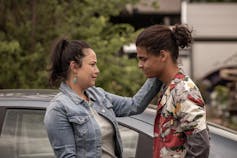
Indigenous media in North America have rapidly expanded over the last 30 years, with Indigenous media makers gaining greater control of their own narratives, including the ability to subvert colonial representations. Karrmen Crey, who is Stó:lō from Cheam First Nation, is an associate professor in the School of Communication at Simon Fraser University in Burnaby, British Columbia, and the author of “Producing Sovereignty: The Rise of Indigenous Media in Canada.” In this special episode, recorded on-site with an audience in Vancouver at Iron Dog books, Crey speaks with Vinita about the ways Indigenous creators are using humour along with a sharp critique of pop culture to show just how different the world looks when decision-making power over how stories get told shifts and Indigenous media makers take control. (first aired: April, 2024)
This article was originally published on The Conversation. Read the original article.







